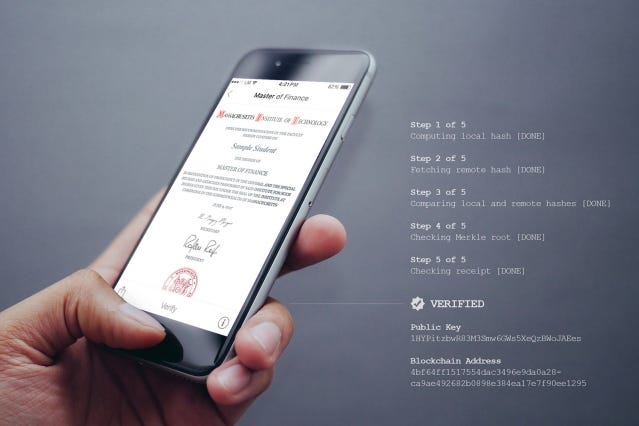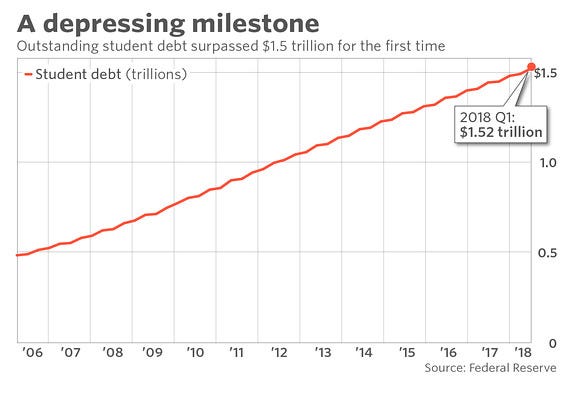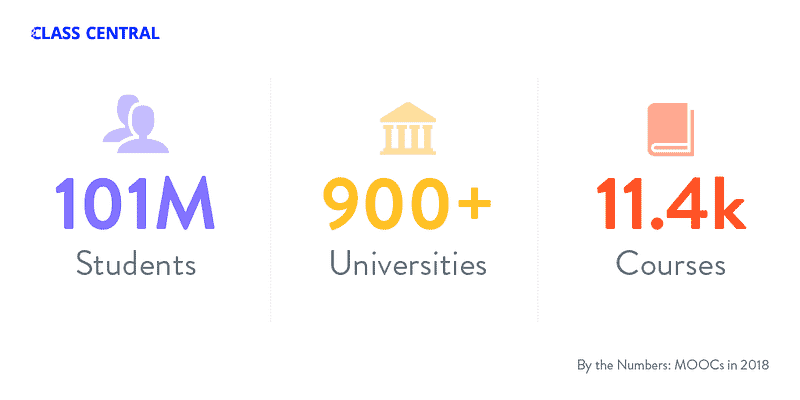
© Akash Deep May 4, 2019

Blockchain is undisputedly an ingenious invention. It’s a technology that began as underpinning for virtual currencies but it is quickly becoming obvious that blockchain is more than just bitcoin.
The encrypted ledger technology that powers bitcoin is primed to reshape the future of many industries. Be it healthcare, finance, media, or the government, the blockchain technology will transform everything.
The technology is sure to disrupt every industry, including education. There is no denying the fact that the education system is far from where it needs to be. Using this technology, a lot of improvements can be made in the education sector.
The edtech sector is huge. It is estimated that it will reach $93.76 billion by 2020. Technologies like Artificial Intelligence and Virtual Reality are already making their way into the education sector. It’s only a matter of time before the blockchain technology becomes mainstream too.
Let’s see how this disruptive technology can revolutionize the education sector.
Digital Certificates

In 2017, MIT issued virtual diplomas to its graduates. Students received them on their smartphones. It was different from a regular paper diploma in a number of ways. Unlike a paper diploma, blockchain diploma will never get lost. It can never be falsified either.
No matter where you go, your certificates will stay with you forever. The need of having traditional clearinghouse or the university as the intermediary to issue the transcripts can also be eliminated using digitized blockchain diplomas.
Now, if students begin to store all their certificates and badges on the blockchain, moving between the universities would become much easier. Barriers like transferring credits will not come in the way of their educational journey. Blockchain is very secure. Once the data has been added, it is almost impossible to alter it. Therefore, all your certificates are safe and secure. And you can access it with the tap of a button.
Making Education Affordable
According to Forbes, the US student debt is $1.52 trillion and 44 million borrowers owe this debt. The student loan debt crisis has become very serious and they are wreaking havoc on the budget years after the graduation. All thanks to high education cost. The mighty blockchain is a savior. The technology can help in making education affordable for all.

In fact, there were 81 education-blockchain ICOs started in 2017 to solve the problem but they disappeared into thin air. Dr. Edward from EIU.AC says that blockchain has industry-changing applications and that the LOL Token can solve real problems like transferability and affordability.
Blockchain is cost effective and scalable. The records are highly secure as they are decentralized. The inherent flexibility in its architecture allows support and storage of records, documents, and digital assets without any additional costs of infrastructure and security.
Institutions also save money on the cost of data management and the legal liabilities that come with it. The technology also allows participants to have individual ownership of shared data from open source, thus saving big on digital system cost.
Expanding MOOC
Massive Open Online Courses have been on the rise. There are 101 million registered users for Massive Open Online Courses and 500 MOOC-based credentials as of 2018. MOOC provider Udacity has 50,000 paying users while Coursera witnessed a 70% increase in paying customers in 2017.

This is enough proof that MOOCs offer great value to the users that they are actually willing to pay for these courses. Blockchain technology could also help and offer a greater level of legitimacy to the MOOC services simply by facilitating the transactions for smaller payments for these courses.
OSU
With the rising education cost, it becomes necessary to look up for cheaper alternatives. The high cost of education is one of the reasons the concept of Open Source University (OSU) became popular. OSUs allows you to store all your educational credentials, adding an air of legitimacy to more affordable and alternate means of education that still carry weight with employers.
Also, OSUs have their own courses and students can choose the one they like. Plus, they are very affordable. By storing certificates and credentials earned through OSUs, on a unified Blockchain database, credentials will be easily verifiable and accessible. Thus, it eliminates the chances of fraud in the diploma marketplace.
Talent Management
Colleges spend a hefty amount to impart training to the students, but maintaining the record of their achievements is a tough task since the records are to be kept and maintained for a lifetime.
Current technologies used for talent management are vulnerable to cyber attacks and are not very safe. Blockchain provides an open and secure system for talent management. Students will have access to it even after they have graduated and joined workforces.
Smart Contract
Blockchain can also be used for executing agreement once a set of instructions or conditions have been met. Smart contracts can reduce paperwork in the education sector. For example, it could be used to validate attendance or assignment completions once a set of conditions have been met. There are many other ways by which smart contracts can help in transforming education.
The distributed ledger technology promises to overhaul the educational experience. Blockchain is still in its early days and the technology has a long way to go. It would be interesting to see what this technology has in store for the education sector.